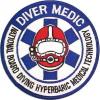Leaderboard
Popular Content
Showing content with the highest reputation on 12/16/2010 in all areas
-
Dear Healthcare Professionals, I fear that you are prejudging a technology without fully understanding how it can be used. visit www.12leadekg.net/ultrasound for more info. I believe that 1 in 6 is accurate.2 points
-
Been staking here fora while, and I figured I ought to contribute something. I've heard this claim about plavix as well, and got curious and I did some digging. I suspect that paramagic is referring primarily to the three big (drug company funded) clinical trials: In NSTEMI: The CURE trial, found here: http://www.nejm.org/...56/NEJMoa010746 On first glance it does seem to indicate benefit with the use of plavix in NSTEMI ACS, but if you read it carefully I think the claim of "no benefit" might be close. 1) There was a demonstrated reduction in risk of a combined primary endpoint of MI, Stroke, Death and secondary of those three plus refractory ischemia. Small benefit was seen with this combined endpoint (especially a small reduction in subsequent MI or ischemia), but no decrease in death was found, though the study was not designed to detect a mortality difference. 2) This study only includes a small, very high risk, subset of potential ACS cases: those with elevated troponin levels or ECG changes. Initially patients over 60 with history of artery disease were included, but after the first 3000 patients with this criteria only harm was found, and the inclusion criteria was adjusted mid-study. The exclusion list was rather lengthy as well. 3) Harm was found: bleeding rates went up significantly. I'm not clear on the clinical significance of some of these events. IN STEMI: The CLARITY-TIMI study, examining addition of clopridogrel to ASA and Fibrinolytics in STEMI: http://www.ncbi.nlm....pubmed/15758000 Really this study is largely the same. Plavix caused a modest improvement in their primary and secondary outcomes, which again were composites of proposed surrogate markers of disease (better blood flow or re-occlusion) or death, and no difference in death was found, and the primary action seemed to be on the rate or re-occlusion. There was a slight trend towards increased mortality with plavix, but the study was underpowered to detect such a difference. This study again had very strict exclusion criteria (half a column!) and the accompanying NEJM editorial suggests that they may have selected low risk patients this time: rate of death and MI were strangely low. The editorial raises other issue as well (no rapid PCI, exclusion issues, etc) and is a good read. This study showed a lesser increase in bleeding rates than CURE, but in a different population, and I think there might be a trend towards more bleeding in the elderly. Truthfully I got a bit confused with the data interpretation, and don't have much else to say, but I think that's the fault of the study. Unfortunately numbers are a bit lacking (in my relatively uneducated opinion). There are few tables, mostly looking at odds ratios for benefit in different cohorts, but I don't find that tremendously useful. They only measured rates of bleeding within the first 8 days or until the day after angiography, and I would really like to know if there was a bleeding difference at other time points, especially before angiography (particularly since placebo randomized patients receiving stents were placed on plavix, and I"m not sure where they ended up in the analysis) . Again, I'm not sure of the clinical significance of the bleeding risk, and could be convinced either way. The third big trial is the COMMIT trial (no the B-blocker part): http://www.ncbi.nlm....pubmed/16271642 I haven't read it yet, and don't have time to now, but it's big (well gigantic really) and purports to show a decrease in death in STEMI with plavix. Of course it is from China…. Not mentioned here is that there also seems to be a rebound effect when ending Plavix. I guess there is a cluster of clinical events which may be related to a hypercoaguable state within a week or so following cessation of treatment. That sort of harm would not be part of the analysis of these studies, if such harm exists, and a brief look didn't turn up great evidence.1 point
-
It appears you have got some great, broad, ideas to begin. I would only add along the lines that have already been mentioned, it really depends on who you are a preceptor for. If it's a student, you will probably need to focus more on basics. If you have a new hire that perhaps worked elsewhere before, you want to focus more on your policies and procedures. The thing to remember is many services out there suffer what I call intellectual inbreeding. It might be something you and your co-workers don't even recognize... typically you don't in fact. But you continue to do something just because "that's the way everyone does it". Try to get out from under those paradigms and offer instruction in such a way that you never forget there are several ways to get a desired result, and the fastest isn't always the best. As for R-E-S-P-E-C-T... never lose sight of that. Dwayne made several great points. Use a mistake as a teachable moment. No reason to berate or belittle (although there is a time and place for that... think knuckle draggers who need to be policed and ran off). And finally... patience. It's hard for me to sit back and observe/assist but that is often what needs to be done when evaluating where someone is at. Get involved the second you need to, but allow them to grow. And growing is a process. Your humble Paramaximus wasn't born great... it took time.1 point
-
Couldn't say it any better!! Can you be my teacher? Your better then some of the shitdicks I work with. This is huge, from a students perspective we are uncomfortable enough and nervous as it is. Pounce on the little tiniest mistake just makes us more on eggshells and distracts us from good patient care. We are more worried then about all the details then listening and treating the patient. Let us have some room and give constructive critisim AFTER the call and what we need to work on. Of course if your student is about to kill someone jump in and correct the situation. Excellent example. I learn more when it doesnt come easy and learn to adapt. Doing it right the first time usually leads to complacency because you think you know it all.1 point
-
Simple, decent human respect. I was 40 years old when I was going through clinicals, and I can't tell you the rage I felt when some 20-30ish something medic would point at a chair and say, "Sit, and wait there until I get back." I would never, ever put up with such shit again. Let them know as much as possible what is expected. In my first stage clinicals I wasn't spoken to unless we were on a call. If the crew went in to eat somewhere, I wasn't welcome to come. If they went back to quarters to watch tv for a few hours I had to stay in the truck. Not just nonsense, but very destructive nonsense. "We're going to stop and grab something to eat, you're welcome to come in with us if you'd like, or if you'd rather stay in the truck and study, that's ok too. I'd just ask that you don't lay down and sleep while on duty." That was my thing, you may have no problem with that of course. Remember that mistakes are much more valuable than successes. We may learn 1 or 2 things from a success, if we're luck, sometimes 50 from a mistake. Allow your student to make mistakes if possible, then teach the mistakes away instead of trying to punish them away. In my opinion the most productive, as well as kind thing that you can do for a new student is to teach them that you understand that mistakes are inevitable and part of the learning process. That you expect them and are not waiting to pounce when they occur. This allows them to be very brave, and aggressive as they know they are free to try anything and to learn as opposed to spending all of their time feeling like they're tip toeing through a mine field. Not long ago we had a new hire that was starting an IV on a pt that I thought looked challenging. She got the IV on her first attempt, was excited, and I gave her a smile and an 'atta boy, but inside was thinking, "Dang it, too bad she hit that, first try. That would have been a great patient for her to locate secondary sites on." Revel in successes, but revel even more in failure! Teach the way to accept failure and learn from it instead of allowing students to be so timid so as to never have to face it. It sounds to me like you're off to a good start. Helping them develop a routine for pt contacts, priceless! As long as it works for them, and not just for you. From your few posts here it sounds as if you'll do really well! Be kind, be patient, be realistic...the rest you'll get figured out. Dwayne1 point
-
The perspective of a student type... What I find useful from a preceptor: Engaged discussion, an accurate review of performance, enough space to develop my own comfortable system with critique to improve it, someone who's not afraid to totally check me when I'm about to do something dumb. Poking me to think more about the pathophysiology is great! Allowing me to put theories and connections out there without being chastised is also nice. Teaching me to develop good working relationships with a variety of personalities. Someone who isn't afraid to ask me what my learning style is and change their teaching accordingly. What I do not find useful from a preceptor: Someone who's hell bent on making me learn their way because it's the ONLY correct way and marks me down for not thinking/acting the exact same way (no Mini-Me attempts, please), someone who doesn't care to engage with me or actually teach me and frowns upon independent thinking. Someone who doesn't understand the concept of a learning curve. Emphasizing short scene times above good care. Does this help at all? This was great for me to think about, as I'll be in nursing clinicals soon... when my preceptors ask me what they expect, I'll be able to think back to this! Wendy CO EMT-B1 point
-
I think one problem may be that too many of today's instructors never took the CBT, since it is a relatively new thing. It sounds like things really haven't changed much though, from the written exam days. Having already been a paramedic for thirty years, I took the NREMT-B written in 2005 and walked away honestly wondering if I had passed or not. The questions were that confusing. Although, I have to say that basic questions are a lot more confusing for an ALS practitioner than for someone straight out of EMT school. As for your friend, I have to honestly say that this simply may not be her bag. No matter how interested she seems, or how intelligent she is, some people simply don't have the aptitude for certain subjects. I'm a good medic, but I can't boil water, much less cook. Whether or not I can sing is a matter of heated public debate, but I digress. If she is bound and determined to do this for whatever reason, then I have but one piece of advice for her; She needs to LEARN THE MATERIAL, and not learn the test. Flash cards and review question books are shyte. They are marginally useful as adjuncts to gauge your knowledge. However, they are absolutely useless as test prep material, especially if you have already failed once or more. In fact, they are probably hurting her. She needs to read, read, read, and re-read the book until it is not just memorised, but UNDERSTOOD. She should be immediately reciting the answers to questions, not because she has them memorised, but because she UNDERSTANDS the answers. When a student doesn't actually understand the concepts concretely within their brain, either their instruction sucks (entirely possible, but this is her second school), or else she simply does not have the aptitude for this particular field. There comes a point where one must be honest with themselves about their limitations.1 point




